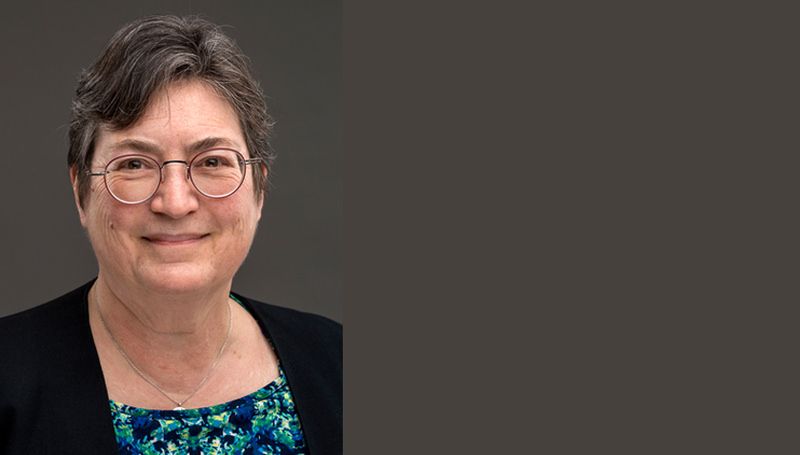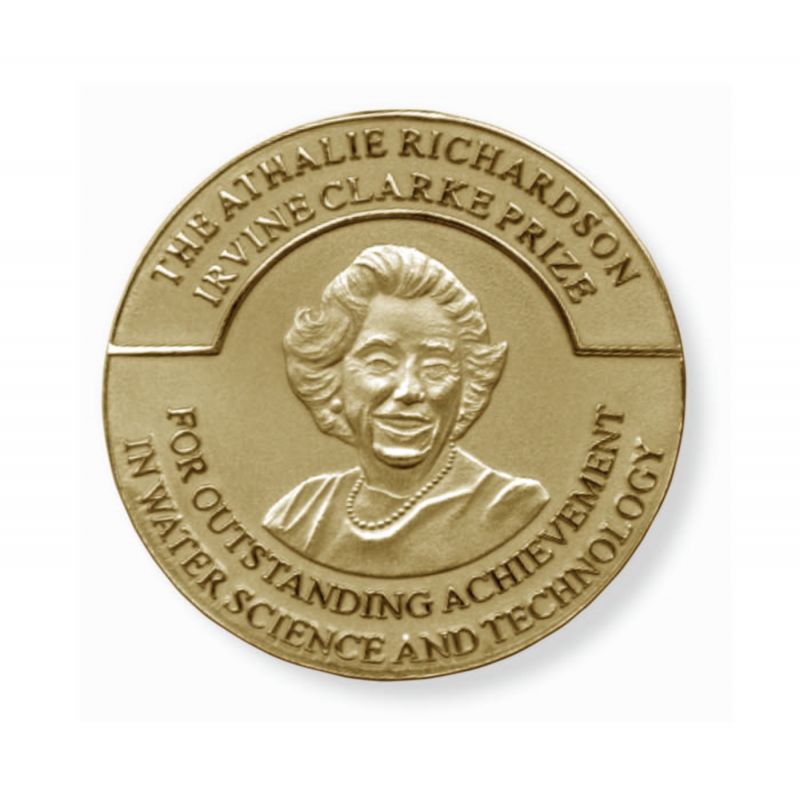Janet Hering to Receive 2018 NWRI Clarke Prize
Published on by Water Network Research, Official research team of The Water Network in Academic
Director of Eawag Honored for Contributions to the Safety of Drinking Water
The National Water Research Institute (NWRI) announced that Janet G. Hering, an American aquatic biogeochemist, has earned the 2018 NWRI Clarke Prize for outstanding achievement in water science and technology. Hering currently serves as the Director of the Swiss Federal Institute of Aquatic Science and Technology (Eawag) and holds professorships at ETH Zurich and EPFL, two of the top universities in continental Europe.

Prof. Dr. Janet Hering , Source: EAWAG
“Dr. Hering’s portfolio of water quality research combined with her persuasive advocacy for inter-disciplinary knowledge transfer have served to enhance water resources sustainability and resiliency worldwide,” said Kevin M. Hardy, J.D., Executive Director of NWRI. “As our twenty-fifth award recipient, Janet joins an elite cohort comprised of the world’s most influential water research professionals.”
Hering will receive the Clarke Prize on October 26, 2018, at the Twenty-Fifth Annual NWRI Clarke Prize Award Ceremony in Orange County, California. NWRI presents the prize – which consists of a medallion and $50,000 award – annually to recognize research accomplishments that solve real-world water problems and to highlight the need to expand funding for research that addresses water supply challenges.
“I am deeply honored to receive the NWRI Clarke Prize on its twenty-fifth anniversary,” said Hering. “I am grateful to all my former mentors, colleagues, and the research group members who contributed to my research and supported my career. The Clarke Prize provides unparalleled visibility for the research themes of its recipients — in my case, trace elements in the water cycle and knowledge exchange at the interface of water science with policy and practice. I am very thankful for this recognition.”
Hering has been instrumental in advancing access to safe drinking water in the United States and abroad. Early in her career, she focused her efforts on understanding the chemistry of drinking water treatment.
While receiving a Ph.D. in Oceanography from the Massachusetts Institute of Technology-Woods Hole Oceanographic Institution Joint Program, she conducted “elegant work on the surprisingly slow kinetics of some reactions between trace metals and organic complexing agents in natural water,” said her former Ph.D. advisor, François Morel, now Professor of Geosciences at Princeton University.
Morel noted she carried out “cleverly designed experiments” and created a theoretical framework to document and quantify the previously-unknown phenomenon. Her insights continue to inform studies of the behavior of trace metals in natural waters.
Hering initially joined Eawag as a Research Fellow after receiving her Ph.D. and began making significant contributions to the field of mineral-water interfaces. Recognized for her leadership skills, she successfully performed duties beyond those of the traditional postdoc position, including organizing scientific exchanges with researchers at other institutions and managing international conferences.
In 1993, she and Morel co-authored a textbook, titled Principles and Applications of Aquatic Chemistry, that – according to Dr. David Sedlak of the University of California Berkeley and one of Hering’s longtime collaborators – is “a masterpiece that has influenced the way in which water chemistry is taught to environmental engineers, geochemists, and environmental scientists around the world.”
Hering returned to the United States to teach at the University of California, Los Angeles, and later at the California Institute of Technology, where she focused much of her research on arsenic removal in drinking water treatment. Hering’s research was critical to the efforts of the Los Angeles Department of Water and Power to treat naturally occurring arsenic in its watershed.
She also served on various expert committees on arsenic, including as a panel member for the U.S. Environmental Protection Agency (USEPA) Ad Hoc Subcommittee on Arsenic Research and as a consultant to the Drinking Water Committee of the USEPA Science Advisory Board. For her outstanding work on arsenic, she was elected to the U.S. National Academy of Engineering in 2015.
Hering’s current investigational efforts at Eawag focus on advancing research in the areas of water quality and management, as well as on promoting collaboration among universities worldwide. For example, she has helped establish interdisciplinary and international collaboration by inviting Professors from the U.S. for guest professorships and lectureships.

Clarke Prize Medallion, Source: Wikimedia Commons, Labeled for Reuse
In addition, Eawag is an international partner with the National Science Foundation’s Engineering Research Center for Re-inventing the Nation’s Urban Water Infrastructure (ReNUWIt). Hering also balances water science with water policy, supporting the synthesis between academic research and its real-world applications. She advocates that water researchers focus on the broader impact of their studies by addressing issues directly related to the well-being of the public while also creating benefits for governments and funding agencies.
A thoughtful and prolific writer, she has written for various scientific journals, and her works have been cited extensively (for example, a 2004 article for ES&T has been downloaded over 19,000 times).
Hering will present the 2018 Clarke Prize Lecture during the Award Ceremony on October 26, 2018. Established in 1993 in honor of NWRI’s co-founder, the late Athalie Richardson Irvine Clarke, the Clarke Prize is among the world’s most prestigious awards for advancement in water research and technology.
Recent past recipients of the Clarke Prize include environmental engineer Charles N. Haas (2017) of Drexel University, microbiologist Mark D. Sobsey of the University of North Carolina at Chapel Hill (2016), and environmental engineer John C. Crittenden of Georgia Institute of Technology (2015).
More information about the NWRI Clarke Prize Conference and Award Ceremony can be found at www.clarkeprize.com.
Congratulations from The Water Network team!
Source: NWRI
Find out more: EAWAG
Media
Taxonomy
- Drinking Water Security
- Treatment
- Drinking Water Treatment
- Quality
- Technology
- Water Quality
- Quality Maintenance
- Drinking Water Managment
- Drinking Water
- Water Quality Management
- Water Quality Research